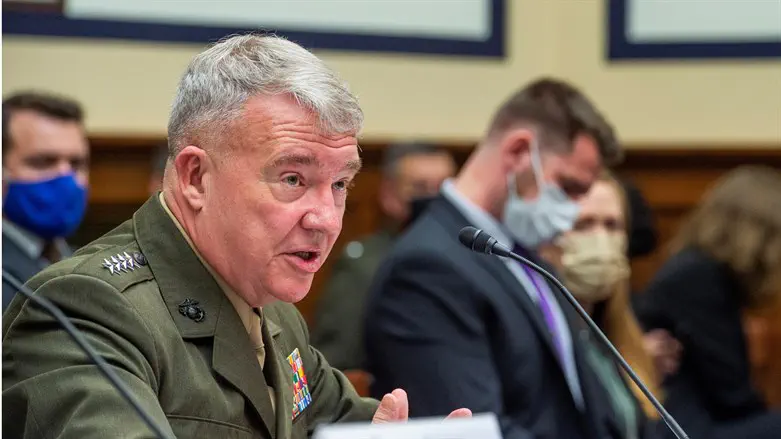
The top US commander in the Middle East said on Wednesday that Iran is “very close” to a nuclear bomb and his forces stand ready with a potential military option should talks with the Islamic Republic fail.
“Our president said they’re not going to have a nuclear weapon,” General Kenneth McKenzie, commander of US Central Command, told TIME Magazine.
“The diplomats are in the lead on this, but Central Command always has a variety of plans that we could execute, if directed,” he added.
McKenzie said he believes Tehran has not made the decision to press ahead with manufacturing an actual nuclear warhead, but he shares concerns with America’s Middle East allies about the progress Iran has made.
“They’re very close this time. I think they like the idea of being able to breakout,” he told TIME.
Even if Tehran decides to amass enough fuel for a bomb, McKenzie said, the nation hasn’t yet standardized a design for a warhead that’s small enough to be affixed atop any of its arsenal of 3,000 ballistic missiles. Nor has Iran shown that it can build a reentry vehicle capable of surviving the searing heat, pressure and vibration of falling from space back to Earth.
“We haven’t seen any of that,” McKenzie said. “That’s what’s going to take a little time for them to build.” He estimated it would take Iran more than a year to develop this capability with a robust testing program.
The comments come days before the resumption of talks between Iran and world powers in Vienna, aimed at saving Tehran's 2015 deal with major powers.
Soon after the resumption of talks was announced, Iran demanded that the US lift sanctions imposed on Iran as part of the nuclear talks and also reassure Iran it will not abandon the deal again.
US officials have said that while they prefer the diplomatic route to reach an agreement with Iran, there are other options on the table should that fail.
US Defense Secretary Lloyd Austin echoed that sentiment this past Saturday, saying that the US is committed to solving the Iran nuclear issue using diplomacy, but will consider all options if diplomacy fails.
"The United States remains committed to preventing Iran from gaining a nuclear weapon. And we remain committed to a diplomatic outcome of the nuclear issue. But if Iran isn't willing to engage seriously, then we will look at all the options necessary to keep the United States secure," Austin said in a speech at the International Institute for Strategic Studies Manama Dialogue 2021 taking place in Manama, Bahrain.
"We and our partners will return to those talks in good faith. But Iran's actions in recent months have not been encouraging — especially because of the expansion of their nuclear program," he continued.
